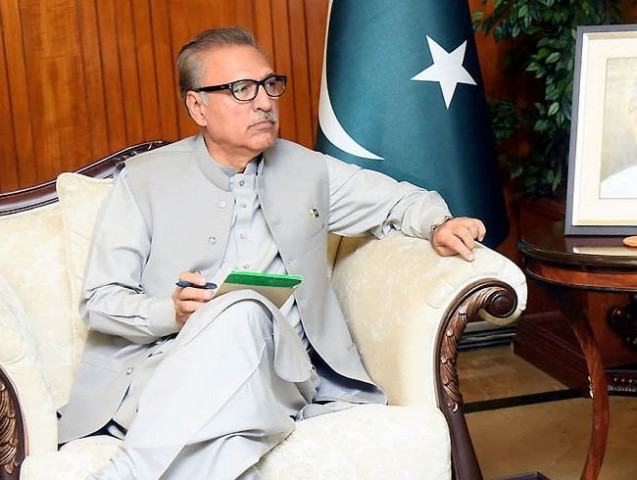President Alvi urges int'l community to play its role in lifting IOK curfew
Pak-India relations have touched a new low after New Delhi scrapped the valley's special status

President Arif Alvi. PHOTO: NNI
Talking to a visiting Turkish media delegation led by Prof Halil Toker in Islamabad, the president said: “India’s unilateral action of 5th August, 2019 of altering the status of Occupied Jammu & Kashmir, recognised as a disputed territory by the UN Security Council, was illegal under international law.”
"The belligerent Indian leadership, with its thumb on nuclear button, is doggedly hinduizing India and persecuting minorities and has, therefore, become a threat not only to the regional and world peace, but also to the very social fabric of India itself," Alvi said.
The president went on to say that “what India was doing in Jammu and Kashmir was analogous to Israeli brutalities in Palestine.”
Praising the admirable role of Turkish media in highlighting the Kashmir issue, Alvi hoped that it would continue its efforts to raise voice for the oppressed people of occupied valley.
"Pakistan was thankful to the people and the Government of Turkey for its constant support on Kashmir issue and Pakistan would continue to support the Turkish Government and its people on issues of Turkish interest," he added.
Relations between Pakistan and India have touched a new low after Delhi scrapped the special status of its only Muslim-majority region in rushed presidential decree on August 5. The state has been under a near-complete lockdown since then. Several rights groups including Human Rights Watch and Amnesty International have repeatedly called on India to lift restrictions and release political detainees in IOK.
For decades, occupied region enjoyed special status under the Indian constitution, which allowed it to enact its own laws. The provisions also protected the region's citizenship law, which barred outsiders from settling in and owning land in the territory.






1733130350-0/Untitled-design-(76)1733130350-0-208x130.webp)












COMMENTS
Comments are moderated and generally will be posted if they are on-topic and not abusive.
For more information, please see our Comments FAQ